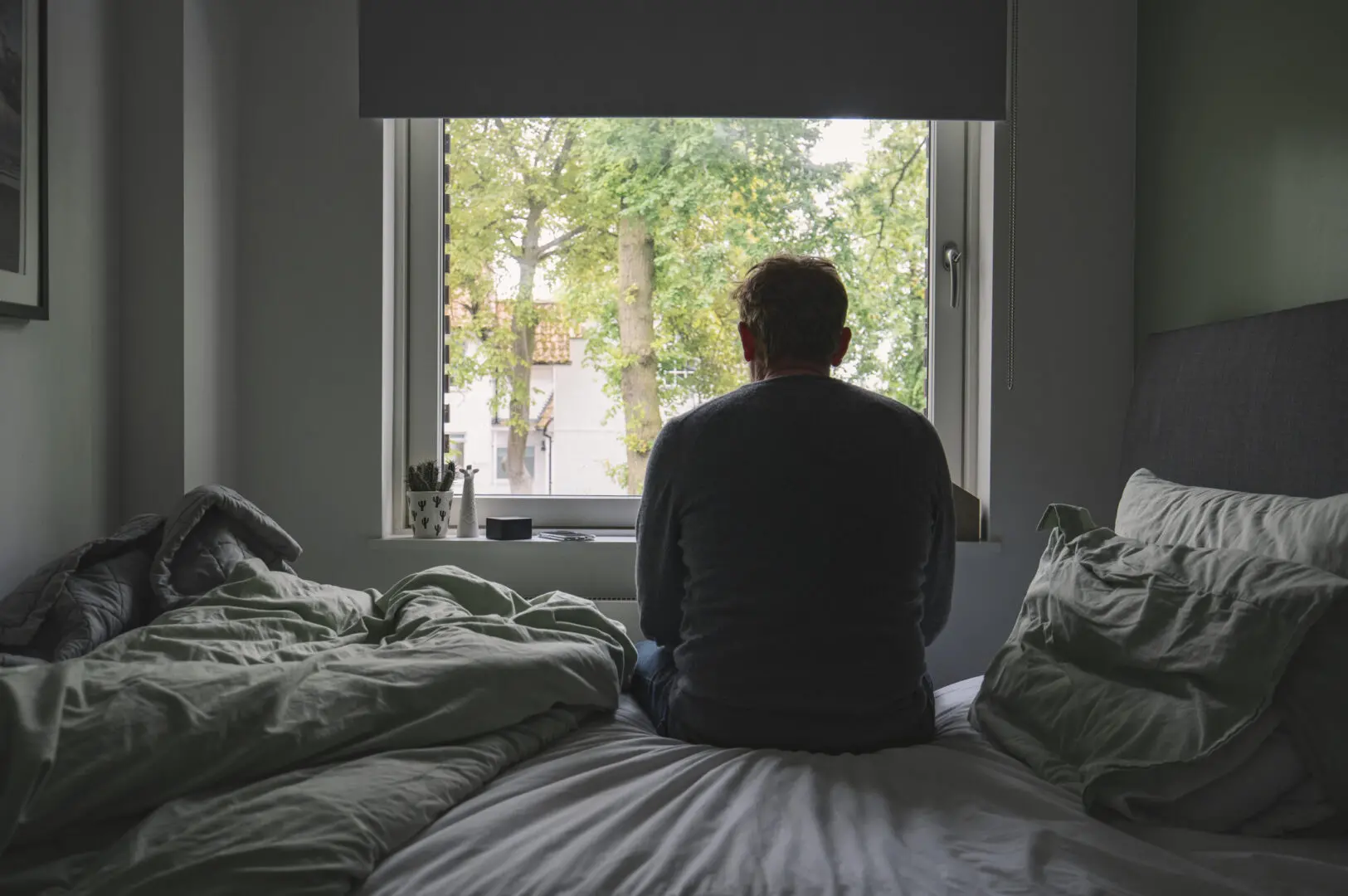Exploring the Link Between Housing Stability and Mental Health, an article reposted from the July 16, 2024, “Fed & Main” newsletter by the Federal Reserve Bank of New York. (Photo: Courtesy Getty Images for FRBNY)
Article by: Mia Chapman
May 28, 2024 (6 MIN READ)
Millions of people in the United States living with mental health challenges face barriers to finding and maintaining stable housing. Mental health encompasses emotional, psychological, and social well-being, and mental health illnesses are some of the most common health conditions across the country. There are myriad causes of mental health illnesses and challenges, however, there is evidence that the accessibility of stable and affordable housing can improve mental health. As much as the benefits of stable housing can help uplift mental health, the repercussions of a lack of stable and affordable housing can exacerbate mental health challenges. This is a trend identified among both renters and homeowners, with similar mental health repercussions reported on those experiencing mortgage strain.
Repercussions of Unstable Housing on Mental Health
A recent study reported that individuals with mental health challenges are at-risk of experiencing exacerbated mental health symptoms as a result of housing instability. With the growing housing affordability crisis, individuals and families experiencing high cost burdens are numerous. Those experiencing long-term housing affordability stress report significant negative effects on mental health related to social, emotional, and mental functioning.
The eviction process has also been found to have serious mental health repercussions on renters. In the two years following an eviction, people were more likely to visit the emergency room or require hospitalization for a mental health condition (compared to those who had not experienced an eviction). Eviction is more common among low-income tenants and disproportionately affects renters who are black, indigenous, and people of color (BIPOC).
Reducing cost burdens and long-term affordability stress can help alleviate less-severe mental health challenges. Those experiencing serious mental illnesses may find it significantly more difficult to access stable housing; the number of Fair Housing complaints related to mental illness and disability has in recent years. Furthermore, many people with serious mental illnesses rely on Social Security Insurance (SSI) and Social Security Disability Insurance (SSDI) payments, making many housing options unaffordable. Individuals experiencing chronic unsheltered homelessness also experience daily struggles and face emotional tolls of exposure to the elements, difficulty meeting basic needs, and a lack of economic opportunity.

While mental illness does not cause homelessness, the experience of homelessness exacerbates mental health conditions and symptoms of mental illness.Source: National Library of Medicine
Policies and Programs to Support Mental Health Through Housing
There is an array of federal policies and housing programs that aim to support mental health through the provision of housing or related funding and services. The American Rescue Plan Act (ARPA) of 2021 and the Emergency Rental Assistance (ERA) program have helped provide rental assistance to state and local program grantees to support those in need. State and local governments have used State and Local Fiscal Recovery Funds (SLFRF) provided through ARPA to distribute additional rent, mortgage, or utility assistance to more than 700,000 households and provided eviction prevention services to more than 100,000 households in 2021.
In 2021, the U.S. Department of Housing and Urban Development (HUD), in collaboration with the Department of Health and Human Services (DHHS), established the Housing and Services Resource Center. The center strives to provide federal resources to individuals seeking housing and social services support, including behavioral health, personal care, transportation, and community living options. As a response to the growing mental health crisis, HUD is also training housing counselors, housing-based services coordinators, and Fair Housing grantee staff in basic mental health skills.
The Substance Abuse and Mental Health Services Administration (SAMHSA) has funding available for homelessness services through the Projects for Assistance in Transition from Homelessness (PATH) program. Source: SAMSHA

The PATH program is intended to fund services for people with serious mental illnesses experiencing homelessness and is part of the first major federal legislative response to homelessness. PATH grants are distributed annually at the state level, where each state or territory solicits proposals and awards funds to local public or nonprofit organizations, which are known as PATH providers. The PATH program has reached over 100,000 individuals and enrolled nearly 60,000 PATH-eligible clients in a variety of services.
How Are Cities Supporting Mental Health Through Housing?
Cities are developing programs to provide mental health services alongside providing housing, in addition to leveraging federal policies and funding to provide services to the local community. Mental health services and policies can often be most impactful at the local community level, making city initiatives vital in the provision of mental health services.
- Boise, ID – The New Path Community Housing project was developed in collaboration with the City of Boise, Ada County, and the HUD Supportive Housing Program. New Path strives to address homelessness through the provision of permanent supportive housing and has been one of Boise’s biggest accomplishments in its efforts to address homelessness since 2009. New Path is a 40-unit apartment building for those who have experienced chronic homelessness and their partners. Most New Path residents have chronic or debilitating health conditions such as mental health challenges or brain disorders, long-term substance use disorders, or trauma. To adequately support residents, these residents receive daily or weekly support from onsite staff, such as case management, physical and mental health care, substance abuse counseling, life skills training, and peer support groups.
- Seattle, WA – Plymouth on First Hill is a permanent supportive housing development in Seattle that provides 77 units of housing to individuals experiencing chronic homelessness. The project was designed specifically for residents with physical and mental illnesses, even winning an award for housing accessibility. Many of the units are fully compliant with the Americans with Disabilities Act (ADA) standards, and the rest comply with universal design principles, making all units easily accessible for those living with mental health challenges, substance use disorders, and physical disabilities.
- Santa Monica, CA – The City of Santa Monica has partnered with the Los Angeles County Department of Mental Health to equip first responders with behavioral health teams to more appropriately provide mental health services to those experiencing homelessness. The pilot program provides a therapeutic transport team to assist first responders in Santa Monica and is part of the city’s holistic approach to addressing homelessness. By scaling solutions, such as immediate mental health support services, the city hopes to holistically address homelessness and work towards securing stable housing for all residents.
Links to further reading:






